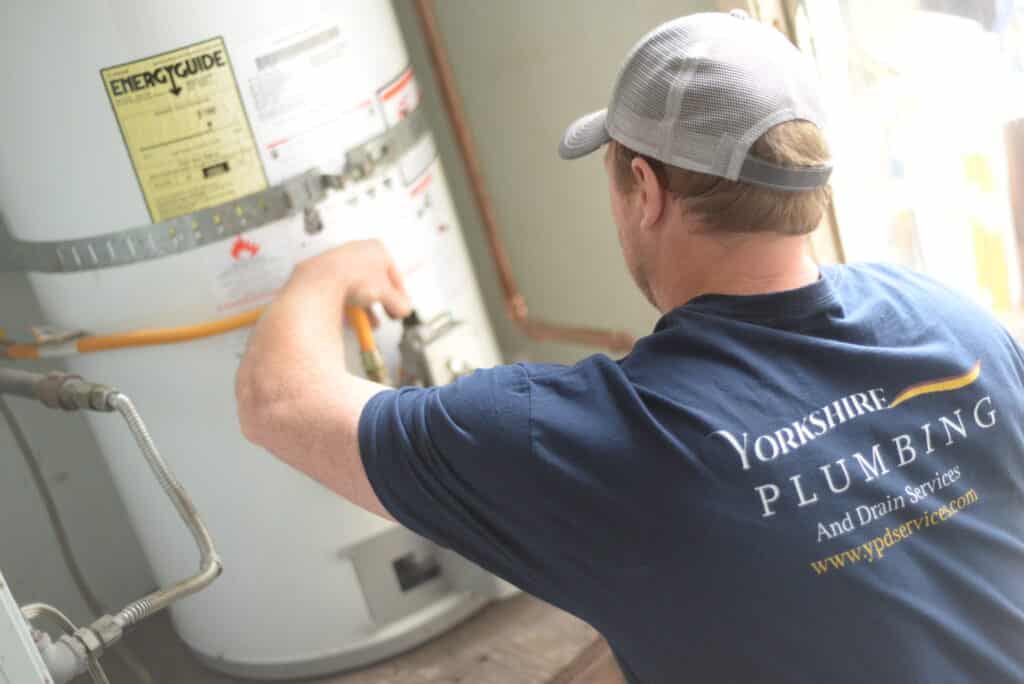Your water heater is an essential appliance in your home, providing hot water for showers, washing dishes, and doing laundry. However, like any other appliance, it requires regular maintenance to ensure it continues to function efficiently and effectively.
In this article, we will discuss the essential tips for water heater maintenance to help you keep your water heater running smoothly and avoid costly repairs.
Why Is Water Heater Maintenance Important?
Regular maintenance of your water heater is crucial for several reasons:
- It extends the lifespan of your water heater.
- It ensures your water heater operates efficiently, saving you money on energy bills.
- It helps prevent costly repairs or replacements.
- It ensures your water heater is safe to use.
How Often Should You Maintain Your Water Heater?
The frequency of maintenance for your water heater depends on the type of water heater you have. For traditional tank water heaters, it is recommended to have annual maintenance. However, for tankless water heaters, maintenance should be done every two to three years.
Essential Tips for Water Heater Maintenance
Check the Temperature and Pressure Relief Valve
The temperature and pressure relief valve is a crucial safety feature of your water heater. It is responsible for releasing excess pressure and preventing the tank from exploding.
To check the valve, lift the lever and let it snap back into place. You should hear a gurgling sound as the valve opens and closes. If you don’t hear anything, or if water continues to flow after releasing the lever, it may be time to replace the valve.
Drain and Flush the Tank
Over time, sediment and minerals can build up in your water heater tank, reducing its efficiency and potentially causing damage. To prevent this, it is essential to drain and flush the tank at least once a year.
To do this, turn off the power or gas supply to the water heater and shut off the cold water supply. Connect a garden hose to the drain valve at the bottom of the tank and run it to a drain or outside. Open the valve and let the tank drain completely. Once drained, close the valve and turn the cold water supply back on to flush out any remaining sediment.
Inspect the Anode Rod
The anode rod is a sacrificial rod that attracts corrosive elements in the water, protecting the tank from rust and corrosion. Over time, the anode rod will deteriorate and need to be replaced.
To inspect the anode rod, turn off the power or gas supply to the water heater and shut off the cold water supply. Locate the anode rod on top of the tank and use a wrench to loosen and remove it. If the rod is less than ½ inch thick or is coated in calcium, it is time to replace it.
Check for Leaks
Leaks are a common issue with water heaters and can lead to costly repairs or replacements if left unchecked. Regularly inspect your water heater for any signs of leaks, such as puddles of water or rust around the tank.
If you notice a leak, it is essential to address it immediately. In some cases, a simple repair may be all that is needed, but if the tank is damaged, it may need to be replaced.
Test the Heating Elements
For electric water heaters, it is crucial to test the heating elements to ensure they are functioning correctly. To do this, turn off the power supply to the water heater and remove the access panel. Use a multimeter to test the heating elements for continuity. If there is no continuity, the element may need to be replaced.
Insulate the Pipes
Insulating the hot and cold water pipes connected to your water heater can help reduce heat loss and save you money on energy bills. You can purchase pipe insulation from a hardware store and easily install it yourself.
Schedule Professional Maintenance
While there are some maintenance tasks you can do yourself, it is essential to schedule professional maintenance for your water heater at least once a year. A professional plumber will have the expertise and tools to thoroughly inspect and maintain your water heater, ensuring it continues to operate efficiently and safely.
How Much Does Water Heater Maintenance Cost?
The cost of water heater maintenance can vary depending on the type of water heater you have and the extent of the maintenance needed. For traditional tank water heaters, annual maintenance can cost between $100-$200. For tankless water heaters, maintenance every two to three years can cost between $150-$400.
Conclusion
Regular maintenance is essential for keeping your water heater running efficiently and avoiding costly repairs or replacements. By following these essential tips, you can extend the lifespan of your water heater and save money on energy bills. Remember to schedule professional maintenance at least once a year to ensure your water heater is in top working condition.






